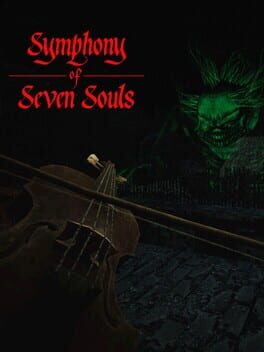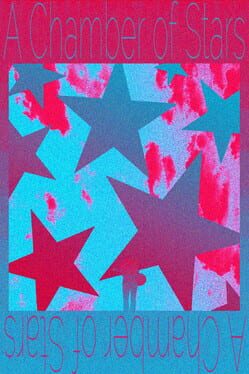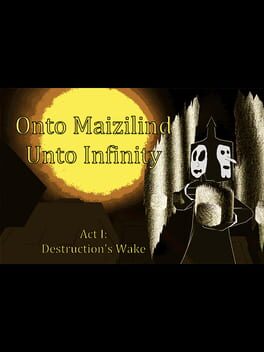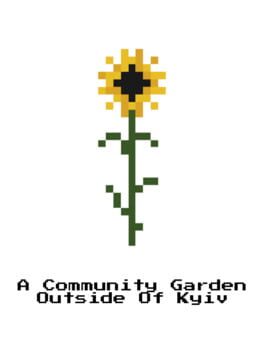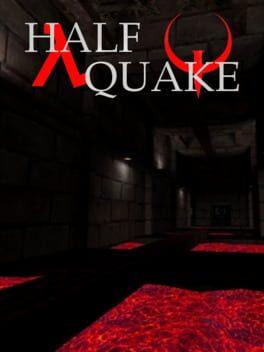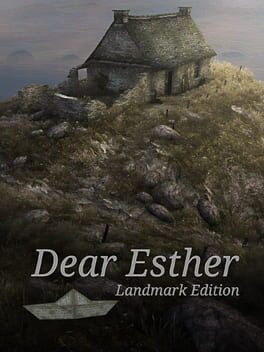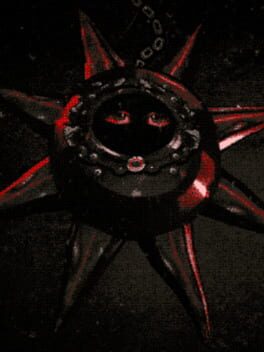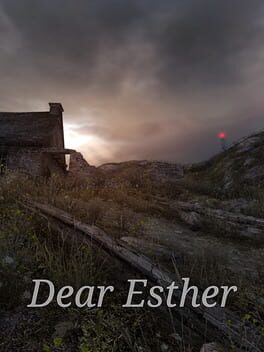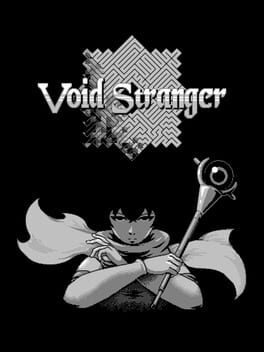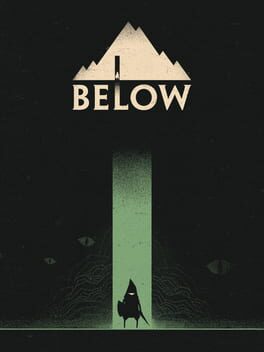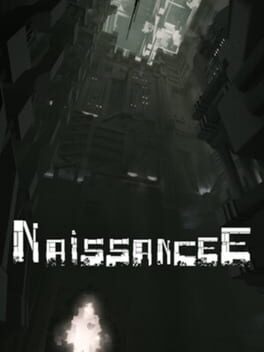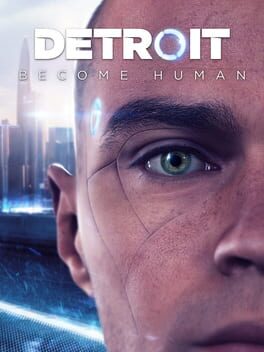Gótico y sensual, un juego que sabe capturar con mucho atino esa sensación de atracción y repulsa que la escritura decimonónica amaestró y que el videojuego contemporáneo siempre ha querido imitar. En su forma más sencilla, este juego te muestra lo que sería experimentar las cadencias del género de Poe sin las encerronas de un título de acción como Castlevania.
---------
Gothic and sensual, this game knows how to skillfully capture that feeling of attraction and repulsion that nineteenth-century writing mastered and that contemporary videogames have always wanted to imitate. In its simplest form, this game shows you what it would be like to experience the cadences of Poe's genre without the confinements of an action title like Castlevania.
---------
Gothic and sensual, this game knows how to skillfully capture that feeling of attraction and repulsion that nineteenth-century writing mastered and that contemporary videogames have always wanted to imitate. In its simplest form, this game shows you what it would be like to experience the cadences of Poe's genre without the confinements of an action title like Castlevania.
TBD
Con un estilo tan sencillo, Nodomus es una invitación a recrearnos en el misterio. A exacerbar ese impulso que el terror y la ciencia ficción nos incita muchas veces a querer ver más de cerca aquello que podría dejarnos con los huesos helados. Tiene un acabado fascinante, que me recuerda a la promesa ofrecida por el Half-life original del mundo de Xen (y que me gustó tanto a pesar de lo poco que le gusta al resto).
-------------
With such a simple style, Nodomus invites us to dive into a sense of mystery and feed our impulse to take a closer look at that which repels us, something that horror and science fiction are very prone to make us do. It's fascinating ending reminded me of the promise offered by the original Half-life's Xen, and how far they could have taken it.
-------------
With such a simple style, Nodomus invites us to dive into a sense of mystery and feed our impulse to take a closer look at that which repels us, something that horror and science fiction are very prone to make us do. It's fascinating ending reminded me of the promise offered by the original Half-life's Xen, and how far they could have taken it.
Hay algo increíblemente anticuado en la manera con la que este juego aproxima su crítica a la sociedad de consumo. Como si estuvieras visitando una exposición surrealista de los años 60 o una tira cómica del Roto en la actualidad. Es un juego muy boomer en su presentación. Y aún así, las referencias de las que está mamando son indiscutiblemente modernas. La obra que más se aproxima a Chamber of Stars es sin duda alguna Gingiva, pero ese juego tiene algo que decir sobre alienación que el foco de esta historia en particular (una que parece más interesada en el camino a la celebridad) no atiende tando. Aún así, creo que tiene suficientes elementos interesantes que explorar para querer ver lo que sigue.
--------
There's something incredibly old-fashioned about the way this game approaches its way of critiquing consumer society. Almost as if you were visiting a surrealist exhibition from the 1960s or a Roto comic strip of today. It is a very boomer game in its presentation, and yet the references are undeniably modern. The work that comes closest to Chamber of Stars is undoubtedly Gingiva, but that game has something more to say about alienation than this incredibly vague critique of celebrity culture.
--------
There's something incredibly old-fashioned about the way this game approaches its way of critiquing consumer society. Almost as if you were visiting a surrealist exhibition from the 1960s or a Roto comic strip of today. It is a very boomer game in its presentation, and yet the references are undeniably modern. The work that comes closest to Chamber of Stars is undoubtedly Gingiva, but that game has something more to say about alienation than this incredibly vague critique of celebrity culture.
2021
Este juego continúa donde Blue Lacuna y 17776 lo dejaron y añade la misma presentación y estilo (con mucho menos estilo) que el proyecto SCP. Ahora mismo no tiene mucho que explorar, pero es suficiente para recomendaros que hagáis una corta buceada a algunos artículos aleatorios. También se podría decir que este es el juego perfecto para la gente que pasa más tiempo en las enciclopedias de los juegos triple A que jugando, pero eso es un poco más cruel y no quiero meterme con nadie.
----------
This game picks up where Blue Lacuna and 17776 left it off, and adds the same presentation and style (with much less style) as the SCP project. You could also say that this is the perfect game for people who spend more time in triple-A game encyclopedias than playing them, but that's a bit cruel and I don't want to pick on anyone.
----------
This game picks up where Blue Lacuna and 17776 left it off, and adds the same presentation and style (with much less style) as the SCP project. You could also say that this is the perfect game for people who spend more time in triple-A game encyclopedias than playing them, but that's a bit cruel and I don't want to pick on anyone.
2020
No echo de menos los controles policiales, la insensible actitud de la arquitectura ni la bizantina gestión de los pases y las interminables esperas, pero una cosa que siempre se me ha guardado de mis viajes en avión es el largo paseo que va entre el control policial y la zona de desembarque, esa que cruza todos los Duty Free y te mete de lleno en los recovecos de la estación. Eso es lo que este juego (uno que, por una vez, se recrea de verdad en un espacio liminal) captura con tanto acierto.
-------------
I don't miss the police check, the inhuman architecture, the byzantine management or the interminable waits, but one thing that has always stays with me during my air travels are the long walks from one point to another, the ones that make me cross all over the Duty Free and allow you see the inner workings of the terminal. That's what this game (one that, for once, truly recreates a liminal space) captures so well.
-------------
I don't miss the police check, the inhuman architecture, the byzantine management or the interminable waits, but one thing that has always stays with me during my air travels are the long walks from one point to another, the ones that make me cross all over the Duty Free and allow you see the inner workings of the terminal. That's what this game (one that, for once, truly recreates a liminal space) captures so well.
¿Cómo transmitir el dolor interno de una persona, de una familia, de una nación y de una cultura entera? ¿Cómo atrapar los múltiples sentimientos inexplicables que sentimos cuando todo se desmorona? Muchas veces sentimos desesperación e ira, y el deseo de huir se mezcla con el deseo de contraatacar. Pero otras veces nos invade una extraña euforia, como si estuviéramos exudando toda la alegría que nos queda por compartir. Y otras veces nos odiamos, y deseamos que hubiéramos podido hacer algo distinto antes del fin.
Onto Maiziling Unto Infinity es todo aquello que A Garden Community e incontables piezas mediáticas generadoras de empatía no sabrán comprender sobre la dimensión humana. No sólo la que tiene que ver con poner la carita triste para la cámara que publicará la foto en una revista que consumirán ricos de conciencia liberal, sino la que revela nuestras partes más feas y nuestros deseos más humanos. Es uno de los mejores juegos de este año, y el tipo de obra que justifica mi amor hacia el medio.
--------------
How to convey the a person's inner pain, a family's, a nation's, or of an entire culture? How to capture the many unexplainable feelings we feel when everything falls apart? Many times we feel despair and anger, and the desire to flee mixes with the desire to fight back. But other times we are overcome with a strange euphoria, as if we are exuding all the joy we have left to share. And other times we hate ourselves, and wish we could have done something different before the end.
Onto Maiziling Unto Infinity is everything that A Garden Community and countless empathy-generating media pieces fail to grasp about the human dimension. It shows us that it isn't about putting a sad face for the camera for a pristine magazine and for liberal-conscious rich people to consume, but about revealing the ugliest, and often the most human, aspects of ourselves. It's one of the best games of this year, and the kind of work that justifies my love for the medium.
Onto Maiziling Unto Infinity es todo aquello que A Garden Community e incontables piezas mediáticas generadoras de empatía no sabrán comprender sobre la dimensión humana. No sólo la que tiene que ver con poner la carita triste para la cámara que publicará la foto en una revista que consumirán ricos de conciencia liberal, sino la que revela nuestras partes más feas y nuestros deseos más humanos. Es uno de los mejores juegos de este año, y el tipo de obra que justifica mi amor hacia el medio.
--------------
How to convey the a person's inner pain, a family's, a nation's, or of an entire culture? How to capture the many unexplainable feelings we feel when everything falls apart? Many times we feel despair and anger, and the desire to flee mixes with the desire to fight back. But other times we are overcome with a strange euphoria, as if we are exuding all the joy we have left to share. And other times we hate ourselves, and wish we could have done something different before the end.
Onto Maiziling Unto Infinity is everything that A Garden Community and countless empathy-generating media pieces fail to grasp about the human dimension. It shows us that it isn't about putting a sad face for the camera for a pristine magazine and for liberal-conscious rich people to consume, but about revealing the ugliest, and often the most human, aspects of ourselves. It's one of the best games of this year, and the kind of work that justifies my love for the medium.
De nuevo, me tengo que remitir a nuestra última Mochila de Juego, pero ¿Qué distingue este gesto banal de un anuncio de Intermón Oxfam? No me gusta la idea de que la caridad y la empatía hacia les que sufren un conflicto injusto se pueda convertir en algo tan vacío. Si vas a crear arte del sufrimiento ajeno, por lo menos que sea arte que te permita entenderlo, no hacerte sentir bien contigo misme.
------------------
What distinguishes this banal thing from an Intermon Oxfam advert? I don't like the idea that charity and empathy for those who are suffering can be exploited for something so empty. If you are going to create art out of the misery of others, at least make it so that people may approach, not to make you feel good about yourself.
------------------
What distinguishes this banal thing from an Intermon Oxfam advert? I don't like the idea that charity and empathy for those who are suffering can be exploited for something so empty. If you are going to create art out of the misery of others, at least make it so that people may approach, not to make you feel good about yourself.
2001
Es increíble lo tantísimo que esto grita "soy de 2001". En muchos aspectos, Halfquake es la prueba fehaciente de que el modelo de juego que Portal hizo popular venía siendo habitual entre modders desde finales de los 90 si no antes. Aquí diría que demasiadas pruebas se basan en encuentros con enemigos y en hacerte caminar de un lado a otro del mismo pasillo mientras tratas de averiguar qué ha cambiado. Es un diseño bastante burdo y que espero que se haya refinado un poco en las siguientes entregas de la saga.
--------
It's amazing how much this screams "I'm from 2001". In many ways, Halfquake is proof that the gameplay model that made Portal popular had been commonplace among modders since the late 90s if not earlier. Here I'd argue that too much design is based on enemy encounters and making you walk back and forth down the same hallway while trying to figure out what's changed. It's a rather crude design and one that I hope has been refined a bit in the next instalment.
--------
It's amazing how much this screams "I'm from 2001". In many ways, Halfquake is proof that the gameplay model that made Portal popular had been commonplace among modders since the late 90s if not earlier. Here I'd argue that too much design is based on enemy encounters and making you walk back and forth down the same hallway while trying to figure out what's changed. It's a rather crude design and one that I hope has been refined a bit in the next instalment.
Jugando a esta versión tras la edición original sirve, fundamentalmente, para apreciar un poco mejor lo que años de progreso técnico pueden haber hecho más difícil de percibir, o para acabar con la ofuscación tirando de los comentarios del equipo original. Una parte mía lamenta la pérdida de esa ofuscación y no puede evitar tener sentimientos negativos hacia esta obra, a pesar de que, a todos los efectos, se trata de la misma. Pero otra se alegra de haber podido conocer de cerca los pensamientos y formas que hubieron antes, aunque sea a coste de esa pérdida.
---------------
Playing this version after the original one fundamentally serves to appreciate a little better what years of technical progress have made more difficult to perceive, or to dissipate ambiguity by pulling the original team's commentary. Part of me regrets the loss of that obfuscation and can't help to harbor negative feelings at this edition for that despite being basically the same game. But another is glad to have been able to get a closer look at the thoughts and ideas that went before the final text, even if it meant losing that ambiguity.
---------------
Playing this version after the original one fundamentally serves to appreciate a little better what years of technical progress have made more difficult to perceive, or to dissipate ambiguity by pulling the original team's commentary. Part of me regrets the loss of that obfuscation and can't help to harbor negative feelings at this edition for that despite being basically the same game. But another is glad to have been able to get a closer look at the thoughts and ideas that went before the final text, even if it meant losing that ambiguity.
2023
Presentándose como una transcripción aleatoria de pensamientos inconexos e imágenes descontextualizadas, Loneliest Depths sólo funciona si consigues, de algún modo, situarte en una espiral de decadencia similar a la que podría tener alguien que sufre de catastrofismo. Esta es una forma un poco rebuscada de decir que no soy capaz de encontrarle sentido a esta sucesión de imágenes, independientemente de lo que algunas me atraigan o fascinen. Puede que el trasvase de imágenes siniestras asociadas a la metáfora de la zambullida eterna funcione para algunes, pero a mí, esta exhibición de decadencia indulgente me deja indiferente.
------------------
Presenting itself as a random transcription of disjointed thoughts and decontextualized images, Loneliest Depths only works if you somehow manage to place yourself in a spiraling process similar to catastrophism. This is a very roundabout way to say that I am not able to extract any value of this succession of images, no matter how I may find of them interesting or fascinating.Maybe the sequencing of sinister images coupled with the metaphor of an eternal dive might work for you, but for me, this exhibition of decadent indulgence leaves me in the cold.
------------------
Presenting itself as a random transcription of disjointed thoughts and decontextualized images, Loneliest Depths only works if you somehow manage to place yourself in a spiraling process similar to catastrophism. This is a very roundabout way to say that I am not able to extract any value of this succession of images, no matter how I may find of them interesting or fascinating.Maybe the sequencing of sinister images coupled with the metaphor of an eternal dive might work for you, but for me, this exhibition of decadent indulgence leaves me in the cold.
2012
Tras la tormenta producida por este juego en 2012, y las discusiones inútiles fomentadas por Youtubers sin sentido del gusto, Dear Esther se ha quedado como un vago recuerdo de una época en la que parecía que cada semana aparecía un nuevo juego que rompía la barrera del "arte" y se ganaba el respeto del público general. Pero si vuelves a jugarlo hoy, sin la morralla que lo rodeó, verás un proyecto visual y auditivo muy logrado que aspira a ser una novela inglesa modernista, pero que por desgracia no termina de aterrizar.
Es una desgracia, pero tenemos que tener en cuenta que Dear Esther compite con gigantes como Proteus por el tipo de inmersión que sólo un puñado de obras han logrado. Y a decir verdad, la manera en que este juego consigue sumergirte en un páramo fantasmagórico de sonidos, tanto reales como imaginados, es comparable a apenas un puñado de obras incluso hoy.
Por otra parte, el emplazamiento de objetos e ítems es exquisito, y contribuye más que la narración, la actuación o incluso la luz a sentir que lo que estás jugando no es un lugar real, sino uno metafórico, situado entre la Historia y el Yo.
-----------------------
After the storm produced by this game in 2012, and the pointless discussions pushed by Youtubers with no sense of taste, Dear Esther has become a vague memory of a time when it seemed that every week a new game was attempting to break the “art” barrier and earn the respect of the general public. But if you play it today and without the its context, you'll see a pretty accomplishing visual and aural project that aspires to be a modernist novel, but doesn't quite stick the landing for me.
It's unfortunate, but we have to keep in mind that Dear Esther competes with giants like Proteus for the kind of immersion it's promoting. And truth be told, the way this game manages to insert you into a ghostly wasteland of real and ethereal sounds is comparable only to a handful of works today.
On the other hand, the placement of objects and items is exquisite, and contributes more than the narration, the acting or even the lighting to the feeling that what you are playing is not a real place, but a metaphorical one, situated between History and Self.
Es una desgracia, pero tenemos que tener en cuenta que Dear Esther compite con gigantes como Proteus por el tipo de inmersión que sólo un puñado de obras han logrado. Y a decir verdad, la manera en que este juego consigue sumergirte en un páramo fantasmagórico de sonidos, tanto reales como imaginados, es comparable a apenas un puñado de obras incluso hoy.
Por otra parte, el emplazamiento de objetos e ítems es exquisito, y contribuye más que la narración, la actuación o incluso la luz a sentir que lo que estás jugando no es un lugar real, sino uno metafórico, situado entre la Historia y el Yo.
-----------------------
After the storm produced by this game in 2012, and the pointless discussions pushed by Youtubers with no sense of taste, Dear Esther has become a vague memory of a time when it seemed that every week a new game was attempting to break the “art” barrier and earn the respect of the general public. But if you play it today and without the its context, you'll see a pretty accomplishing visual and aural project that aspires to be a modernist novel, but doesn't quite stick the landing for me.
It's unfortunate, but we have to keep in mind that Dear Esther competes with giants like Proteus for the kind of immersion it's promoting. And truth be told, the way this game manages to insert you into a ghostly wasteland of real and ethereal sounds is comparable only to a handful of works today.
On the other hand, the placement of objects and items is exquisite, and contributes more than the narration, the acting or even the lighting to the feeling that what you are playing is not a real place, but a metaphorical one, situated between History and Self.
2023
Necesitaría mucho más que unas pocas líneas para intentar describir los altibajos emocionales que Void Stranger me ha provocado. Incomprensión e incomodidad, interés y fascinación, rabia y melancolía, alegría y asombro, y finalmente, un tono agridulce al que me alegro de haber jugado. Por cada piso que pude terminar por mi cuenta, hubo tres que tuve que buscar la solución online; por cada mural que descifré, dos que no hubiera entendido jamás; y por cada escena de culpa católica enmarcada en personajes estereotípicos que me hizo apretar los dientes de la indignación, hubo tres que me hicieron sentir que estaba tocando de verdad al autore.
Decimos que los juegos son obras personales de la misma forma que decimos que detrás de cada obra de arte se sobreentiende siempre cierto esfuerzo y horas de trabajo: como una convención comodona, destinada a reafirmar nuestra decisión de dedicar el poco tiempo que tenemos de vida a un arte que seguramente no posea ni la mitad de humanidad que el poema más parco. Con Void Stranger sentí que experimentaba arte y basura a partes iguales, y en ese sentido, es un juego que me ha hecho pensar más que nunca en mi relación con este medio que me ha traído tantas alegrías y tantas, tantas decepciones.
Puedes admirar Void Stranger por la inquina mentalidad puesta a la hora de diseñar según que puzzles, y puedes detestarlo por su tendencia casi obsesiva a la ofuscación, que en más de una ocasión me hicieron querer cortar del todo. También puedes reconocer su intrincada narración, digna de cierta escuela de diseño post-Undertale que pareció tomar como única lección el accidente de Gaster. Pero para mí, lo que tiene valor de esta maraña de modos extra es el hecho de que, al final del día, el mensaje siempre es el mismo, el de la importancia de aprender a amar. En los momentos en que es así de simple, Void Stranger me agarra de verdad, y en los momentos en que deja relucir sus partes más avergonzadas, es cuando me irrita de verdad.
Así que le pongo un 4, porque supongo que un 5 quedaría reservado para los juegos que me afectan a un nivel estrictamente personal o me parecen encapsulaciones ideales de una forma que no siempre sabré explicar, puedo afirmar sin ninguna duda que hay muchas cosas en Void Stranger que no me gustan. Pero no puedo negar que me ha hecho pensar de un modo que pocas obras, irónicamente desde Undertale, lograron.
--------------------------
I would need much more than a few lines to describe the emotional ups and downs that Void Stranger has provoked in me. Incomprehension and discomfort, interest and fascination, anger and melancholy, joy and wonder, and finally, a bittersweet note that I'm glad I had the opportunity to experience. For every floor I was able to finish on my own, there were three I had to look up the solution online for; for every mural I deciphered, two of them I would never have guessed on my own; and for every scene of Catholic guilt framed by stereotypical characters that made me cringe in indignation, there were three that made me feel like I was really reaching the author.
We say that games are personal works in the same way that there's always some effort put behind everything, in the sense that we use to reaffirm our life choice to devote so much of our precious time on Earth to an art form that probably doesn't have as much humanity within it as the shortest poem. With Void Stranger I felt like I was experiencing art and dreck on several occasions, and in that sense, it is a game that has made me think more about my relationship with a medium that has brought me so much joy and yet so much disappointment than many others.
You can admire Void Stranger for its devilish attitude towards puzzle design, and you can loathe it for its almost obsessive tendency to obfuscation, which made me want to quit it many times. You can also recognize its intricate storytelling, worthy of a post-Undertale school of design that took Gaster's accidental fame as its main bullet point. But for me, what's valuable about this mess of a title is the fact that, at the end of the day, the message remains the same: That of the importance of being loved. When it's that simple, is when it grabs me better. And when it's much more dishonest and shameful is when it really irritates me.
So I give it a 4, because I suppose a 5 should be reserved for games that affect me on a very personal level or encapsulate an ideal form of gaming that I'm not always good at explaining. I can state without a doubt that there are many things in Void Stranger that I don't like. But I can't deny that it has made me think in a way that few works, ironically since Undertale, managed to do.
Decimos que los juegos son obras personales de la misma forma que decimos que detrás de cada obra de arte se sobreentiende siempre cierto esfuerzo y horas de trabajo: como una convención comodona, destinada a reafirmar nuestra decisión de dedicar el poco tiempo que tenemos de vida a un arte que seguramente no posea ni la mitad de humanidad que el poema más parco. Con Void Stranger sentí que experimentaba arte y basura a partes iguales, y en ese sentido, es un juego que me ha hecho pensar más que nunca en mi relación con este medio que me ha traído tantas alegrías y tantas, tantas decepciones.
Puedes admirar Void Stranger por la inquina mentalidad puesta a la hora de diseñar según que puzzles, y puedes detestarlo por su tendencia casi obsesiva a la ofuscación, que en más de una ocasión me hicieron querer cortar del todo. También puedes reconocer su intrincada narración, digna de cierta escuela de diseño post-Undertale que pareció tomar como única lección el accidente de Gaster. Pero para mí, lo que tiene valor de esta maraña de modos extra es el hecho de que, al final del día, el mensaje siempre es el mismo, el de la importancia de aprender a amar. En los momentos en que es así de simple, Void Stranger me agarra de verdad, y en los momentos en que deja relucir sus partes más avergonzadas, es cuando me irrita de verdad.
Así que le pongo un 4, porque supongo que un 5 quedaría reservado para los juegos que me afectan a un nivel estrictamente personal o me parecen encapsulaciones ideales de una forma que no siempre sabré explicar, puedo afirmar sin ninguna duda que hay muchas cosas en Void Stranger que no me gustan. Pero no puedo negar que me ha hecho pensar de un modo que pocas obras, irónicamente desde Undertale, lograron.
--------------------------
I would need much more than a few lines to describe the emotional ups and downs that Void Stranger has provoked in me. Incomprehension and discomfort, interest and fascination, anger and melancholy, joy and wonder, and finally, a bittersweet note that I'm glad I had the opportunity to experience. For every floor I was able to finish on my own, there were three I had to look up the solution online for; for every mural I deciphered, two of them I would never have guessed on my own; and for every scene of Catholic guilt framed by stereotypical characters that made me cringe in indignation, there were three that made me feel like I was really reaching the author.
We say that games are personal works in the same way that there's always some effort put behind everything, in the sense that we use to reaffirm our life choice to devote so much of our precious time on Earth to an art form that probably doesn't have as much humanity within it as the shortest poem. With Void Stranger I felt like I was experiencing art and dreck on several occasions, and in that sense, it is a game that has made me think more about my relationship with a medium that has brought me so much joy and yet so much disappointment than many others.
You can admire Void Stranger for its devilish attitude towards puzzle design, and you can loathe it for its almost obsessive tendency to obfuscation, which made me want to quit it many times. You can also recognize its intricate storytelling, worthy of a post-Undertale school of design that took Gaster's accidental fame as its main bullet point. But for me, what's valuable about this mess of a title is the fact that, at the end of the day, the message remains the same: That of the importance of being loved. When it's that simple, is when it grabs me better. And when it's much more dishonest and shameful is when it really irritates me.
So I give it a 4, because I suppose a 5 should be reserved for games that affect me on a very personal level or encapsulate an ideal form of gaming that I'm not always good at explaining. I can state without a doubt that there are many things in Void Stranger that I don't like. But I can't deny that it has made me think in a way that few works, ironically since Undertale, managed to do.
2018
Juegos como Below nos invitan a plantearnos qué tipo de vacío tuvo que revelar Dark Souls en el corazón de les jugadores para que se lanzara toda una escuela de roguelikes inspirada en su modelo. Below cumple, a nivel superficial, con todas las expectativas: exploración de tierras desconocidas y abandonadas, cercanía siempre amenazante de la muerte, y un mundo hostil e indiferente al que no nos ata nada que no sea el deseo de controlarlo y (spoilers para el final) acabar con él.
Below cumple con todas las marcas prototípicas del Soulslike, pero añade un par de elementos que lo diferencian radicalmente. El primero es que los controles y el combate son mucho más sencillos, mucho más cerca de un Zelda que de otra cosa. Con ese esquema, la sensación de peligro se ve menos acrecentada por los enemigos y más por las trampas del mundo, que se sienten verdaderamente crueles y malintencionadas de un modo que la premeditada y controlada indiferencia de los Souls nunca evoca. El segundo es que, cuando morimos, uno de nuestros compañeres/descendientes ocupa nuestro lugar de inmediato. En los niveles más complicados y severos, esto da a Below una capa de gestión cruel sobre mandar a tu gente a morir mientras recoges los fragmentos almacenas las armas más potentes. Ni siquiera Darkest Dungeon te invitaba a ver a tus avatares de una forma tan inhumana.
En resumen, diría que este juego es muy logrado, pero frustrante de un modo que no termina de conectar conmigo. Irónicamente, el elemento que más me desconectó fue la necesidad de grindear para la última sección de la mazmorra.
----------------------
Games like Below invite us to ask what kind of void did Dark Souls reveal to players so that many roguelikes would try to fill it in later years. It superficially meets all the expectations of the genre: exploration of unknown, desolated lands, the looming closeness of death, and a hostile and indifferent world that means nothing to us except how can we control it (spoilers for the end) finish it.
Below checks every proverbial Soulslike checkmark, but has a couple of elements radically set it apart. The first is that the controls and combat are much simpler, closer to Zelda than anything else really. With those mechanics the sense of danger is incentivized less by enemies and more by the traps, which feel truly cruel and malicious in a way that the Souls titles never attempt to evoke. The second is that when we die one of our companions/descendants will take our place. In the more difficult areas, this gives Below a layer of cruel management vibe about sending people to their death while you collect the shards and stash the better weapons. Not even Darkest Dungeon invited you to view your avatars so inhumanly.
To sum up, I would say that this game accomplished everything it set out to do, but frustrating in a way that didn't connect with me. Ironically, the element that turned me off the most was the need to grind for the last section of the dungeon.
Below cumple con todas las marcas prototípicas del Soulslike, pero añade un par de elementos que lo diferencian radicalmente. El primero es que los controles y el combate son mucho más sencillos, mucho más cerca de un Zelda que de otra cosa. Con ese esquema, la sensación de peligro se ve menos acrecentada por los enemigos y más por las trampas del mundo, que se sienten verdaderamente crueles y malintencionadas de un modo que la premeditada y controlada indiferencia de los Souls nunca evoca. El segundo es que, cuando morimos, uno de nuestros compañeres/descendientes ocupa nuestro lugar de inmediato. En los niveles más complicados y severos, esto da a Below una capa de gestión cruel sobre mandar a tu gente a morir mientras recoges los fragmentos almacenas las armas más potentes. Ni siquiera Darkest Dungeon te invitaba a ver a tus avatares de una forma tan inhumana.
En resumen, diría que este juego es muy logrado, pero frustrante de un modo que no termina de conectar conmigo. Irónicamente, el elemento que más me desconectó fue la necesidad de grindear para la última sección de la mazmorra.
----------------------
Games like Below invite us to ask what kind of void did Dark Souls reveal to players so that many roguelikes would try to fill it in later years. It superficially meets all the expectations of the genre: exploration of unknown, desolated lands, the looming closeness of death, and a hostile and indifferent world that means nothing to us except how can we control it (spoilers for the end) finish it.
Below checks every proverbial Soulslike checkmark, but has a couple of elements radically set it apart. The first is that the controls and combat are much simpler, closer to Zelda than anything else really. With those mechanics the sense of danger is incentivized less by enemies and more by the traps, which feel truly cruel and malicious in a way that the Souls titles never attempt to evoke. The second is that when we die one of our companions/descendants will take our place. In the more difficult areas, this gives Below a layer of cruel management vibe about sending people to their death while you collect the shards and stash the better weapons. Not even Darkest Dungeon invited you to view your avatars so inhumanly.
To sum up, I would say that this game accomplished everything it set out to do, but frustrating in a way that didn't connect with me. Ironically, the element that turned me off the most was the need to grind for the last section of the dungeon.
2014
Un juego absorbente y amenazador, adelantado a su tiempo y al mismo tiempo extremadamente deudor de su época. Firme heredero de los juego-puzzles hechos durante la eclosión indie como AntiChamber (en sí, descendientes de Portal), NaissanceE aporta ofuscación y completo minimalismo para dejarte sólo con las sensaciones. El resultado es excelente, y realmente no tendría nada más que añadir salvo, quizá, un final un poco menos abrupto.
-----------------
An absorbing and enticing game, ahead of its time and at the same time extremely of its time. As an offshoot of the puzzle games boom made during the indie era ala AntiChamber (which came directly from Portal), NaissanceE brings obfuscation and minimalism so that you may just bask in sensation. The results are excellent, and the only thing I'd say is that this needed a slightly less abrupt ending.
-----------------
An absorbing and enticing game, ahead of its time and at the same time extremely of its time. As an offshoot of the puzzle games boom made during the indie era ala AntiChamber (which came directly from Portal), NaissanceE brings obfuscation and minimalism so that you may just bask in sensation. The results are excellent, and the only thing I'd say is that this needed a slightly less abrupt ending.
A estas alturas no le descubro a nadie nada si le digo que Detroit: Become Human es, como cualquier otra obra de Quantic Dream, una idea profundamente fallida que se desploma por su propio peso, y que cualquier virtud que puedas hallar a las horas echadas para diseñar este monstruo (el impresionante árbol de decisiones, la calidad singular de algunas escenas e incluso, por difícil que cueste creer, la fuerza de algunas partes del guion) se va a ver menoscabada por multitud de pequeños detalles molestos que dejan del trabajo de Quantic Dream una impresión antipática. Pero lo que no he visto comentar mucho es que, detrás de todas sus ínfulas de "película interactiva", lo que los trabajos del estudio francés me recuerdan sobre todo es al boom de la aventura gráfica europea de los 2000. Detroit: Become Human no merece ser burlado por no lograr, pese a todo el dinero invertido, acercarse a Blade Runner o a Yo, Robot; merece ser burlado por no acercarse a la calidad de Post Mortem y Still Life.
Sinceramente, me da más lástima que otra cosa a estas alturas.
--------------------------------
At this point I'm not telling anything new if I say Detroit: Become Human is, like any previous Quantic Dream work, a deeply flawed idea work collapses under its own weight, or that any virtue that you may find within, like the choice tree, the quality of some maps and even, as hard as it is to believe, the strength of some aspects of the script, will be undermined by many annoying little details that leave a heavily unpleasant experience. But what I haven't seen being talked about that much is that, behind all its "interactive movie" pretensions, this French studio's work sits closely to the European graphic adventures of the 2000s than anything else. Detroit: Become Human doesn't deserve to be mocked for failing to look like Blade Runner or I, Robot. It deserves to be mocked for reaching the quality of Post Mortem and Still Life.
Honestly, I pity these games more than anything else by now.
Sinceramente, me da más lástima que otra cosa a estas alturas.
--------------------------------
At this point I'm not telling anything new if I say Detroit: Become Human is, like any previous Quantic Dream work, a deeply flawed idea work collapses under its own weight, or that any virtue that you may find within, like the choice tree, the quality of some maps and even, as hard as it is to believe, the strength of some aspects of the script, will be undermined by many annoying little details that leave a heavily unpleasant experience. But what I haven't seen being talked about that much is that, behind all its "interactive movie" pretensions, this French studio's work sits closely to the European graphic adventures of the 2000s than anything else. Detroit: Become Human doesn't deserve to be mocked for failing to look like Blade Runner or I, Robot. It deserves to be mocked for reaching the quality of Post Mortem and Still Life.
Honestly, I pity these games more than anything else by now.
